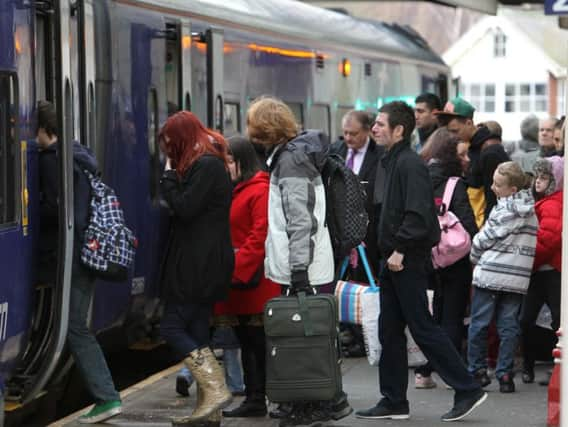Biggest rail fares hike for six years: How it will affect season tickets in Calderdale


The increases apply to “regulated” fares across the country, including many off-peak and standard returns.
They are measured each year by the Retail Prices Index figure for July, which was revealed yesterday.
Advertisement
Hide AdAdvertisement
Hide AdHowever, the more widely used measure, the Consumer Prices Index, was unchanged at only 2.6 per cent, and the anomaly prompted calls for the government to use the other measure instead.
David Sidebottom, director of Transport Focus, the independent watchdog, said: “Commuters do not give value for money on their railways a high satisfaction score - just one third according to our latest survey.
“So while performance remains patchy and with pay and wages not keeping pace with inflation, they will feel rightly aggrieved if they are paying much higher rises next January.”
He added: “Why is the Government not using its preferred measure of inflation: the one that is used to determine wages and pension increases, and one which is often lower than the
Advertisement
Hide AdAdvertisement
Hide AdRetail Prices Index? Why not use the Consumer Prices Index for rail fares too?” His call was echoed by Stephen Joseph, chief executive of the Campaign for Better Transport, who called on the government to impose a fares freeze for January.
He said: “It has frozen fuel duty for the last seven years and we think rail fares should be given the same treatment.”
Alex Hayman, managing director of public markets for the consumer group, Which?, called the price hike “a kick in the teeth for the majority of passengers”.
He said: “Commuters are forking out more and more money for their tickets but are still struggling with delays, overcrowding and dirty carriages.”
Advertisement
Hide AdAdvertisement
Hide AdBut Paul Plummer, chief executive of the Rail Delivery Group, which represents train companies and Network Rail, insisted that costs to the industry rose in line with the Retail Prices Index.
He said: “Rail companies are working together to improve performance now, adding thousands more seats over the next 18 months and, longer term, simplifying fares and ticket buying so that the country has the railway it needs to prosper.”
The Rail, Maritime and Transport Union, whose members have staged a series of strikes on Northern Rail this year in a dispute over the roles of train guards, called for a return to public ownership.
Its leader, Mick Cash, said passengers “already fork out colossal sums to travel on rammed out, unreliable trains while the private operators are laughing all the way to the bank”.
It estimated that price hike would mean an extra £337m for the train companies. The rail industry said profits were expected to remain at around 3 per cent.